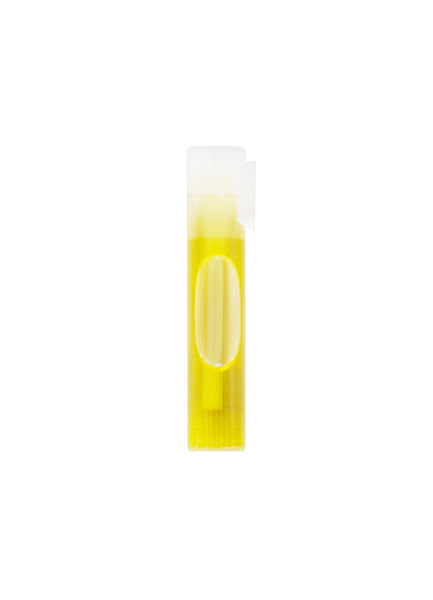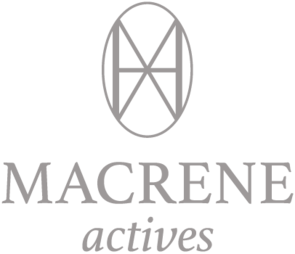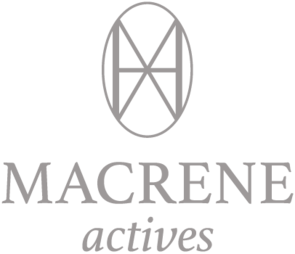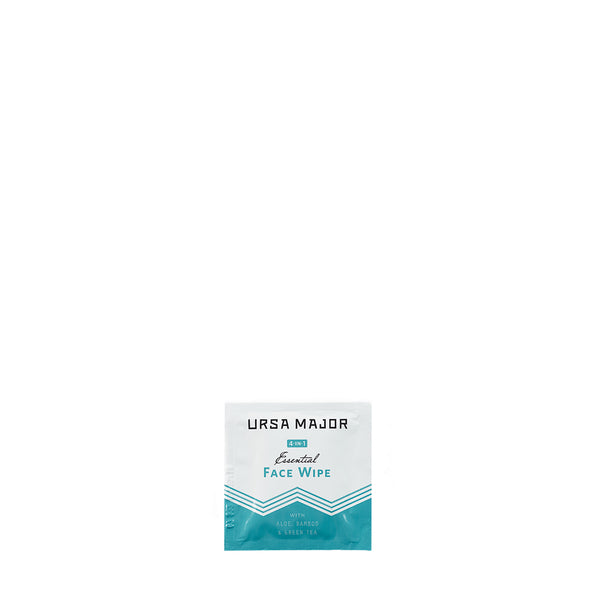Recent Articles

Between its three stellar, distinct, and incredibly efficacious natural deodorant formulas — Hoppin’ Fresh, Base Layer, and Sublime Sage — Ursa Major is likely to be the one brand that will make you switch over from your “eh, it may not be the best thing for me, but it works” drugstore deo. So when their team kindly asked us if we’d like to pepper their Head of Product Development, Cara Bondi, with all of our deodorant questions, we felt like we’d just found a golden ticket.
Read on to learn how deodorant works, and why it’s worth making the switch from anti-perspirant, before delving into the reasons why each one of their formulas is a star.
***
Ayla: Let’s start with some Deodorant 101. How does deodorant work?
CARA: The primary goal of a deodorant is to prevent body odor, and there are a few ways that it can tackle that.
- The first way is to use fragrance. This is about neutralizing active odors – odors that are already present – and making you smell clean. It’s not doing the heavy odor-fighting lifting, but it does play a role, and most deodorants use some type of fragrance.
- The second way is to use antimicrobials that kill odor-causing bacteria so that body odor doesn’t form in the first place. In the armpit, when you sweat, certain types of bacteria (called coryneform) produce an enzyme as they’re eating the sweat, and that’s what creates body odor. The more coryneform bacteria you have in your armpit, the greater the intensity of body odor.
In a deodorant, you want antimicrobials to address the two kinds of sweat your body produces. First, there’s the type produced from thermal changes that happen in the body when you exercise or it’s hot outside. This sweat is made mostly of water — it comes from the eccrine sweat gland, which keeps your body cool. The other kind of sweat is produced by mental stress, which has a lot more protein and lipid in it. We generally produce 4-8x more sweat from mental stress than we do from thermal changes. When people think they smell worse when they’re stressed, that’s real: this type of sweat is what makes you smell like "BO."
- A third way that deodorants can work is by using absorbent materials, like clay or baking soda. This makes you feel drier, and it also prevents body odor from forming because it absorbs sweat before bacteria can get to it.
- The fourth type of ingredients that deodorants can use, and the newest type of technology that’s available, is what we call “odor inhibitors.” These are really cool because they prevent body odor from forming, too — but not simply by absorbing sweat. Instead, they’re enzymes that interfere with the bacteria’s conversion of sweat into body odor. Your body produces these types of enzymes, too, so you’re not creating a weird physiological reaction in your body — you’re just helping your body do this more effectively. These odor-inhibiting ingredients are bio-identical and work really well.
There’s usually a trial and error period when people are trying a new deodorant; using this technology is a great way to give them another option. We want to make sure all the deodorants we create are as effective as possible — and if you have a few different choices, you’re more likely to find something that works for you.
Ayla: What’s the difference between deodorant and anti-perspirant?
CARA: Anti-perspirants are heavily regulated: they’re considered to be OTC drugs because they change your physiology. The key ingredients in anti-perspirants are aluminum actives. These plug the pores and hair follicles and sweat glands in your armpits. But when you do that, there’s nowhere for the sweat to go. The problem here is that sweat is actually a good thing: it helps regulate your temperature, and that stress sweat is something that you want to get out of your body. But you do need to manage it, and that’s where deodorant comes in.
Basically, anti-perspirant will deodorize, kill odor-causing bacteria, and stop you from sweating.
Deodorant, on the other hand, isn’t a drug because it’s not changing your physiology. It deodorizes and kills odor-causing bacteria with the secondary benefit of absorbing moisture — but it doesn’t prevent sweating.
Ayla: So we want to sweat…but without smelling. What are some other reasons why anti-perspirants can be problematic?
CARA: Well, we know that the aluminum in anti-perspirant collects in breast tissue, and there are numerous studies linking it to breast cancer. Causation hasn’t been proven, but there’s a lot of data that indicates correlation. We’ve also seen evidence that it can be a hormone disruptor. And, finally, long-term use will change your armpit’s microbiome — and the more we learn about our microbiome, the more we realize how important it is.
The other issue is that, since aluminum plugs the pores in the armpit, it causes sweat glands to atrophy. So, when people stop using anti-perspirants and do a detox, they notice a significant spike in sweat and body odor because they have to let the body get rid of those aluminum plugs, and the sweat glands have to wake up – so they end up overproducing sweat before they swing back to equilibrium. That detox period usually lasts 4-6 weeks, and you generally see the biggest spike in sweat and odor during weeks 1 and 2. It gradually tapers down, and once you get through that period, it’s pretty manageable.
There are ways to speed up that process. It’s all about purging the aluminum plugs and allowing your sweat glands to recalibrate, so you can scrub your armpits with a loofah; shaving helps, too. Some people also like to use clay masks, or clay mixed with apple cider vinegar, on the armpits. And drinking lots of water will help.
Ayla: You make three deodorant options that we love. Hoppin’ Fresh is your original formula, and it’s still a favorite! What makes it work so well?
CARA: Hoppin’ Fresh uses a few strategies:
- Hops are an amazing botanical that’s totally underutilized in cosmetics. Their alpha and beta acids, which are unique to hops, inhibit gram positive bacteria like coryneform, the bacteria that cause body odor. You also don’t need to use a lot of hops in a formula because of their efficacy. This leaves room for us to include a lot of other great ingredients.
- Saccharomyces ferment is a byproduct of vegetable fermentation, and it’s full of enzymes that can neutralize malodorous substances. It also contains an enzyme that can interact with bacteria’s ability to form odor in the first place.
- Kaolin clay and baking soda absorb moisture and thus prevent the conversion of sweat to body odor.
- The formula also includes an essential oil blend that’s primarily deodorizing via fragrance. But it’s a functional fragrance — it also offers some anti-microbial activity, which provides you with a supplementary mechanism to control odor causing bacteria. And they also create that tingle that some people feel on application – it’s a cool, refreshing feeling, primarily from eucalyptus, mint, and ginger.
Hoppin’ Fresh is intended for everyone. But if a person has sensitivity to baking soda or essential oil based fragrance, Base Layer might be a better option.
Ayla: Base Layer avoids baking soda and essential oils. Can you tell us about your decision to remove those ingredients in this formula?
CARA: Some people are sensitive to baking soda; some people sensitive to fragrance and essential oils. Using a deodorant over an antiperspirant is so important as a general wellness measure, so we wanted to create an option that provided great odor control and absorbency for those with particular sensitivities.
The reason why baking soda matters here comes down to pH. Your armpit is slightly acidic, with a lower pH than the rest of your skin. Baking soda is alkaline, with a high pH. For some people, an imbalance in armpit pH can be irritating.
And fragrances are so complex. We left fragrance out of this formula entirely so that it could be used by anyone with sensitive skin, fragrance sensitivities, or essential oil sensitivities — or anyone who just wants a fragrance free deodorant.
With Base Layer, you get the same odor control and sweat-absorbing ingredients included in Hoppin’ Fresh, but without baking soda and fragrance. And it still works great.
Ayla: And what sets the Sublime Sage formula apart, in your mind? For those with sensitive skin, it seems to offer the best of both worlds (serious odor protection in a baking soda free formula).
CARA: Sublime Sage takes a three-pronged approach. We wanted it to neutralize active (existing) odors; prevent new odors from forming; and also soothe skin, since armpits can be sensitive and people are becoming more conscious of how their armpits look.
- To neutralize active odors, the formula includes a combination of fast-acting antimicrobials to address existing odors within 30 minutes as well as long-lasting antimicrobials that will provide odor protection for the whole day. Some people like to reapply their deodorant, which is fine, but we wanted to create a formula that works all day long in case you can only apply it once in the morning.
These antimicrobials are focused on coryneform bacteria, but there are some other minor bacteria in the armpit that contribute to odor, so we added some broad spectrum antimicrobials as well, including essential oils with antimicrobial activity.
- To prevent new odors from forming, we used a cool new type of technology: a long-lasting odor inhibitor in the form of a naturally derived, skin-identical material. You’ll see this on the ingredient listing as undecylenoyl glycine, which comes from sugar, and polyglyceryl-3 caprylate, which is vegetable derived.
This odor inhibitor actually deactivates odor creation in the pore. The sweat comes into the hair follicle from the side; body odor starts in the follicle and then flows out onto the surface of the skin. So, if we’re actively neutralizing odor and preventing it from forming both on the skin’s surface and also down into the pore, you’ll have much better activity. This makes it efficacious for a longer time, too.
- To take care of the skin from both an odor and condition standpoint, we included an ingredient (triethyl citrate) that blocks the formation of the enzymes that lead to body odor on the surface of the skin, as well as some anti-inflammatory botanicals that can calm and condition the skin.
This formula has incredible efficacy since it works both at the skin’s surface and also into the pores — and it’s vegan, which is a nice benefit. Ursa Major stick deodorants contain ingredients created by honeybees, so Sublime Sage’s spray formula was a way for us to provide a vegan option, too.
Ayla: We hadn’t considered deodorant sprays much before we tried it, but now we’re converts. What made you decide to create a spray, aside from the vegan benefit?
CARA: Our co-founder, Emily, has always loved the idea of a spray. It’s easy to apply when you’re on the go, and it has a lighter touch than a stick. The new technology we’re using — odor inhibitor — works well in a spray. When you’re making a deodorant stick, you have to heat everything until it melts, then pour it and let it solidify. Certain ingredients, like these special odor-inhibiting ingredients, can’t tolerate that heat. But when you’re designing a liquid or spray formula, you have different options.
Sublime Sage is especially great for delicate clothes: it’s non-staining and dries right into the skin. And it’s perfect if you’ve been outside on a really hot day and need a refresh: the little spray is a nice thing to have in your bag.
Ayla: What else do you think we should know about deodorant?
CARA: I think the most important thing to remember is to have a little patience when you’re transitioning from anti-perspirant. It can be tough, but the health and wellness benefit is worth it.
The other tip I’d pass along is that Sublime Sage is a great formula to try if you haven’t yet found that one deodorant that works for you. It might just be the one that gets you hooked.
***
How's that for intriguing? Check out the Ursa Major lineup here. We're huge fans of this cool Vermont brand.
Any topic discussed in this article is not intended as medical advice. If you have a medical concern, please check with your doctor.













